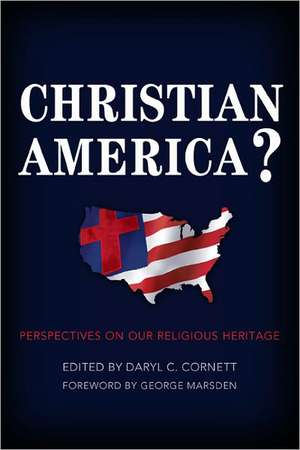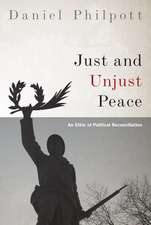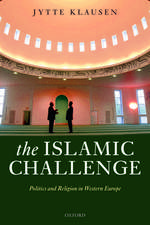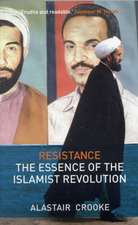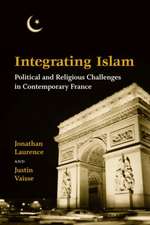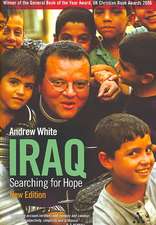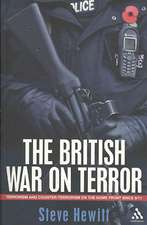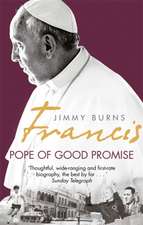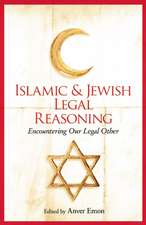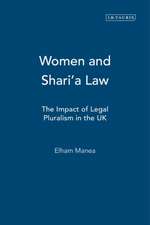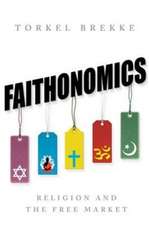Christian America?: Perspectives on Our Religious Heritage
George Marsden Editat de Daryl C. Cornetten Limba Engleză Paperback – 31 oct 2011
David Barton (WallBuilders) supports the idea that America is distinctly Christian based on centuries of authoritative government declarations.
Jonathan D. Sassi (College of Staten Island) believes America is distinctly secular based on the nation s religiously eclectic and secular beginning (particularly the emphasis on "the complete separation of church and state").
William D. Henard (The Southern Baptist Theological Seminary) sees America as essentially Christian, making his case for the nation's crucial faith component while exploring varied interpretations of comments like one made in 2009 by President Barack Obama: "Although... we have a very large Christian population, we do not consider ourselves a Christian nation..."
Daryl C. Cornett, the book's editor, argues that America is partly Christian, a nation that was shaped by a blend of religious and non-religious tendencies. He writes, "After the Civil War steady decline in religious adherence was the impetus for evangelicals to mythologize American history and pine for a return to a golden age of Christian faith and virtue at its founding that never existed.""
Preț: 91.52 lei
Nou
Puncte Express: 137
Preț estimativ în valută:
17.51€ • 18.73$ • 14.60£
17.51€ • 18.73$ • 14.60£
Carte disponibilă
Livrare economică 27 martie-10 aprilie
Preluare comenzi: 021 569.72.76
Specificații
ISBN-13: 9780805444391
ISBN-10: 0805444394
Pagini: 353
Dimensiuni: 141 x 215 x 20 mm
Greutate: 0.45 kg
Editura: B&H Publishing Group
ISBN-10: 0805444394
Pagini: 353
Dimensiuni: 141 x 215 x 20 mm
Greutate: 0.45 kg
Editura: B&H Publishing Group
Textul de pe ultima copertă
Christian America? presents a hearty point-counterpoint discussion about the nature of the relationship Christian faith has had to American politics and culture throughout the country s existence, aiming to determine which of these four differing opinions is most appropriate:
David Barton (WallBuilders) supports the idea that America is distinctly Christian based on centuries of authoritative government declarations.
Jonathan D. Sassi (College of Staten Island) believes America is distinctly secular based on the nation s religiously eclectic and secular beginning (particularly the emphasis on the complete separation of church and state ).
William D. Henard (The Southern Baptist Theological Seminary) sees America as essentially Christian, making his case for the nation s crucial faith component while exploring varied interpretations of comments like one made by President Barack Obama: Although . . . we have a very large Christian population, we do not consider ourselves a Christian nation.
Daryl C. Cornett (senior pastor of First Baptist Church in Hazard, Kentucky, and the book s editor) argues America is partly Christian, a nation shaped by a blend of religious and non-religious tendencies. He writes, After the Civil War steady decline in religious adherence was the impetus for evangelicals to mythologize American history and pine for a return to a golden age of Christian faith and virtue at its founding that never existed.
Daryl Cornett is to be commended for bringing together this thoughtful and engaging symposium (that) offers a significant step forward in this longstanding debate. The differences in perspectives regarding the place of the Christian faith in American history will be obvious; the commonalities, however, create a window for readers to take a fresh look at the place of faith for our twenty-first-century world. Christian America? is a vitally important and informative contribution to the field of American Christianity.
David S. Dockery, President, Union University
The present volume is especially welcome because it addresses the historical question of just how much influence various forms of Christianity had in the formation of the nation. A particularly attractive feature is that each author responds to each of the others, thus bringing to light the most important points on which the debate hinges. George Garsden, University of Notre Dame
The Christian America debate usually yields more heat than light, as its participants have different goals, employ different methods, and define their key terms in different ways. In this volume, however, the debaters engage each other directly, with honesty and charity.
Douglas a. Sweeney, Trinity Evangelical Divinity School
"
David Barton (WallBuilders) supports the idea that America is distinctly Christian based on centuries of authoritative government declarations.
Jonathan D. Sassi (College of Staten Island) believes America is distinctly secular based on the nation s religiously eclectic and secular beginning (particularly the emphasis on the complete separation of church and state ).
William D. Henard (The Southern Baptist Theological Seminary) sees America as essentially Christian, making his case for the nation s crucial faith component while exploring varied interpretations of comments like one made by President Barack Obama: Although . . . we have a very large Christian population, we do not consider ourselves a Christian nation.
Daryl C. Cornett (senior pastor of First Baptist Church in Hazard, Kentucky, and the book s editor) argues America is partly Christian, a nation shaped by a blend of religious and non-religious tendencies. He writes, After the Civil War steady decline in religious adherence was the impetus for evangelicals to mythologize American history and pine for a return to a golden age of Christian faith and virtue at its founding that never existed.
Daryl Cornett is to be commended for bringing together this thoughtful and engaging symposium (that) offers a significant step forward in this longstanding debate. The differences in perspectives regarding the place of the Christian faith in American history will be obvious; the commonalities, however, create a window for readers to take a fresh look at the place of faith for our twenty-first-century world. Christian America? is a vitally important and informative contribution to the field of American Christianity.
David S. Dockery, President, Union University
The present volume is especially welcome because it addresses the historical question of just how much influence various forms of Christianity had in the formation of the nation. A particularly attractive feature is that each author responds to each of the others, thus bringing to light the most important points on which the debate hinges. George Garsden, University of Notre Dame
The Christian America debate usually yields more heat than light, as its participants have different goals, employ different methods, and define their key terms in different ways. In this volume, however, the debaters engage each other directly, with honesty and charity.
Douglas a. Sweeney, Trinity Evangelical Divinity School
"
